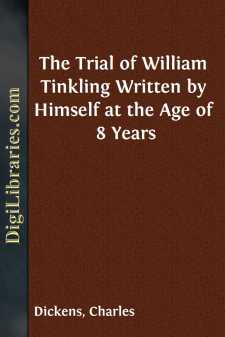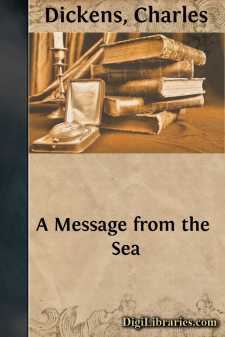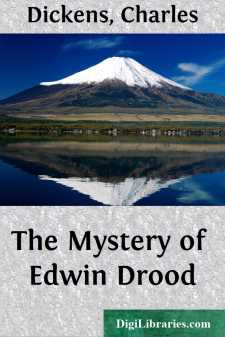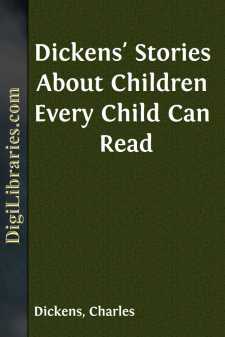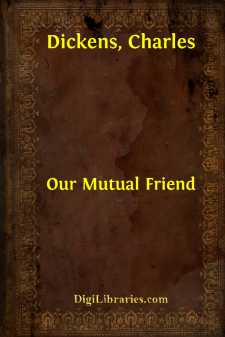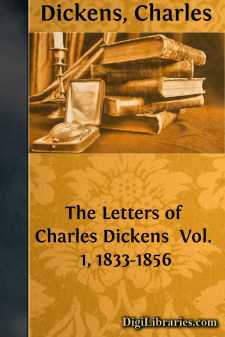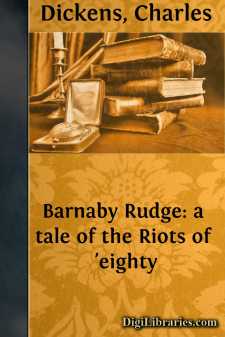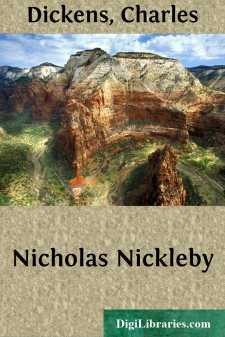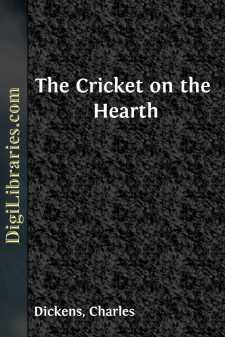Categories
- Antiques & Collectibles 13
- Architecture 36
- Art 48
- Bibles 22
- Biography & Autobiography 815
- Body, Mind & Spirit 144
- Business & Economics 28
- Children's Books 18
- Children's Fiction 14
- Computers 4
- Cooking 94
- Crafts & Hobbies 4
- Drama 346
- Education 58
- Family & Relationships 59
- Fiction 11833
- Games 19
- Gardening 17
- Health & Fitness 34
- History 1378
- House & Home 1
- Humor 147
- Juvenile Fiction 1873
- Juvenile Nonfiction 202
- Language Arts & Disciplines 89
- Law 16
- Literary Collections 686
- Literary Criticism 179
- Mathematics 13
- Medical 41
- Music 40
- Nature 179
- Non-Classifiable 1768
- Performing Arts 7
- Periodicals 1453
- Philosophy 65
- Photography 2
- Poetry 896
- Political Science 203
- Psychology 44
- Reference 154
- Religion 515
- Science 126
- Self-Help 85
- Social Science 82
- Sports & Recreation 34
- Study Aids 3
- Technology & Engineering 59
- Transportation 23
- Travel 463
- True Crime 29
Charles Dickens
Charles Dickens was a renowned English writer and social critic, born on February 7, 1812, and is celebrated for his vivid characters and depictions of Victorian society. Among his most famous works are "A Tale of Two Cities," "Oliver Twist," and "Great Expectations," which continue to be widely read and studied today. Dickens' literature often highlighted social injustices and the plight of the poor, contributing significantly to social reform in 19th-century England.
Author's Books:
Sort by:
by:
Charles Dickens
FOREWORD The story contained herein was written by Charles Dickens in 1867. It is the first of four stories entitled "Holiday Romance" and was published originally in a children's magazine in America. It purports to be written by a child aged eight. It was republished in England in "All the Year Round" in 1868. For this and four other Christmas pieces Dickens received £1,000....
more...
by:
Charles Dickens
CHAPTER I—THE VILLAGE “And a mighty sing’lar and pretty place it is, as ever I saw in all the days of my life!” said Captain Jorgan, looking up at it. Captain Jorgan had to look high to look at it, for the village was built sheer up the face of a steep and lofty cliff. There was no road in it, there was no wheeled vehicle in it, there was not a level yard in it. From the sea-beach to the...
more...
by:
Charles Dickens
CHAPTER 1 Night is generally my time for walking. In the summer I often leave home early in the morning, and roam about fields and lanes all day, or even escape for days or weeks together; but, saving in the country, I seldom go out until after dark, though, Heaven be thanked, I love its light and feel the cheerfulness it sheds upon the earth, as much as any creature living. I have fallen insensibly...
more...
by:
Charles Dickens
CHAPTER IâTHE DAWN An ancient English Cathedral Tower? How can the ancient English Cathedral tower be here! The well-known massive gray square tower of its old Cathedral? How can that be here! There is no spike of rusty iron in the air, between the eye and it, from any point of the real prospect. What is the spike that intervenes, and who has set it up? Maybe it is set up by the...
more...
by:
Charles Dickens
TROTTY VECK AND HIS DAUGHTER MEG."TROTTY" seems a strange name for an old man, but it was given to Toby Veck because of his always going at a trot to do his errands; for he was a ticket porter or messenger and his office was to take letters and messages for people who were in too great a hurry to send them by post, which in those days was neither so cheap nor so quick as it is now. He did not...
more...
by:
Charles Dickens
Chapter 1 ON THE LOOK OUT In these times of ours, though concerning the exact year there is no need to be precise, a boat of dirty and disreputable appearance, with two figures in it, floated on the Thames, between Southwark bridge which is of iron, and London Bridge which is of stone, as an autumn evening was closing in. The figures in this boat were those of a strong man with ragged grizzled hair and...
more...
by:
Charles Dickens
PREFACE.Weintend this Collection of Letters to be a Supplement to the "Life of Charles Dickens," by John Forster. That work, perfect and exhaustive as a biography, is only incomplete as regards correspondence; the scheme of the book having made it impossible to include in its space any letters, or hardly any, besides those addressed to Mr. Forster. As no man ever expressedhimselfmore in his...
more...
by:
Charles Dickens
Chapter 1 In the year 1775, there stood upon the borders of Epping Forest, at a distance of about twelve miles from London—measuring from the Standard in Cornhill,' or rather from the spot on or near to which the Standard used to be in days of yore—a house of public entertainment called the Maypole; which fact was demonstrated to all such travellers as could neither read nor write (and at that...
more...
by:
Charles Dickens
Introduces all the Rest There once lived, in a sequestered part of the county of Devonshire, one Mr Godfrey Nickleby: a worthy gentleman, who, taking it into his head rather late in life that he must get married, and not being young enough or rich enough to aspire to the hand of a lady of fortune, had wedded an old flame out of mere attachment, who in her turn had taken him for the same reason. Thus...
more...
by:
Charles Dickens
CHIRP THE FIRST The kettle began it! Don't tell me what Mrs. Peerybingle said. I know better. Mrs. Peerybingle may leave it on record to the end of time that she couldn't say which of them began it; but I say the kettle did. I ought to know, I hope? The kettle began it, full five minutes by the little waxy-faced Dutch clock in the corner, before the Cricket uttered a chirp. As if the clock...
more...


